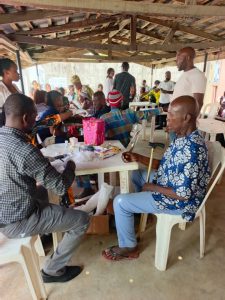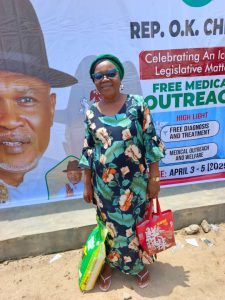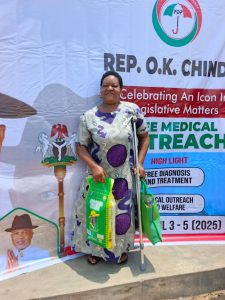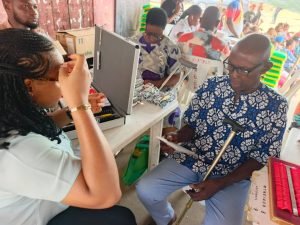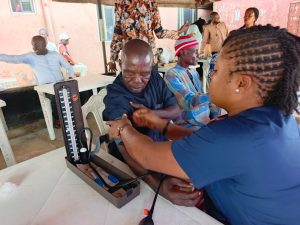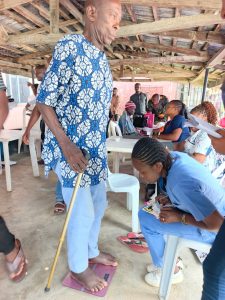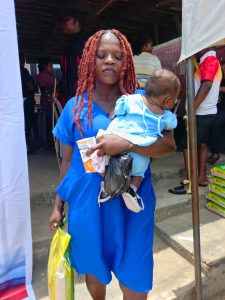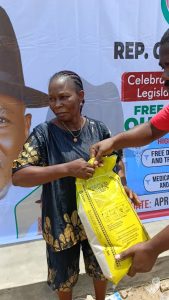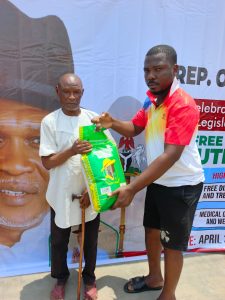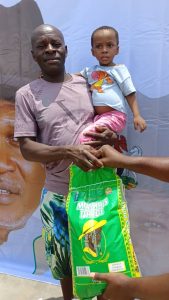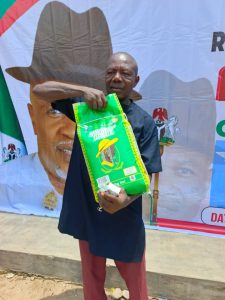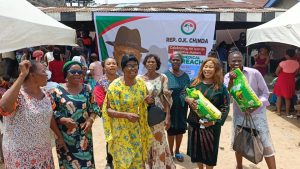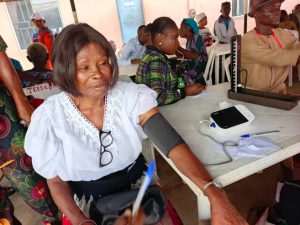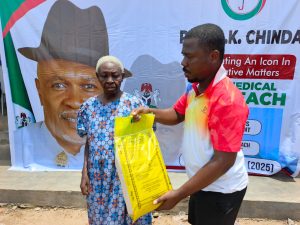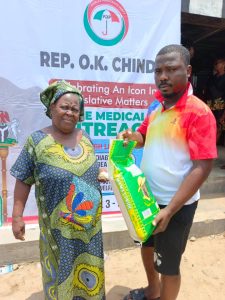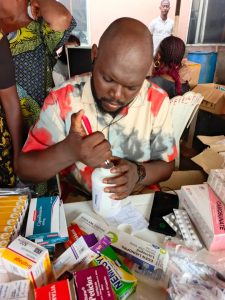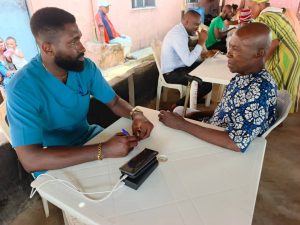News
Cement: How dealers frustrated our N3,500/ bag policy – BUA

The Chairman of BUA Cement, Alh. Abdul Samad Rabiu, yesterday recounted how cement dealers frustrated his company’s N3, 500/bag policy, last year.
He spoke at the 8th Annual General Meeting of the company in Abuja.
He said that while his company sold over a million tones of cement to dealers at N3, 500, per bag, with the intention that they would pass the benefits to end-users, the dealers sold a bag of cement to consumers at as high as N7000 and N8,000.
A ton is equal to 20 bags of 50 kg weight.
He said the company had to discontinue the policy as its intervention was not to subsidise dealers.
According to him, BUA Cement could not stop the dealers whom he said made huge profits from the high margin because the company had no control over prices in the open market.
He added that the Naira devaluation last year and the fuel subsidy removal also played roles in making the policy unsustainable.
Alh Rabiu said, “We were selling cement at N3,500 with the expectation that the dealers and the retailers would pass the benefits of the low price to the end-user customers.
“It’s such that whatever price you sell cement at, you pay. It doesn’t matter what happens if the price doubles or triples if it’s less than that. So, we didn’t actually have that price.
“So, a lot of the dealers took advantage of that policy. Rather than pass the low prices to the customers, they were selling at even double the price we sold to them.
“Some were selling at N7, 000 and 8 000 per bag. They made a lot of money from.the very high margin. I think we had sold more than a million tons, yes at N3,500 before we realised what the dealers were doing.”
“And then, because of the issues that Nigeria faced at the time about devaluation of the.Naira last year and the removal of fuel subsidy, we could not continue that policy.
“We wanted that price to stay at that level but dealers refused. So, we could not sustain that simply because we did not want to be in a situation where we are subsidizing dealers. We are subsidizing the dealers.
“So, I’m referring to the point where the FX rates, the exchange rates, from when we decided to sell it at N3,500, the rate was about N600 to maybe N1,800, N1,900 to the US Dollar. So, it became even more challenging and more difficult for us to actually sustain that price.”
The Chairman said, however, that the company had continued to work towards making that prices did not escalate at levels of the percentage increase of the Naira devaluation.
His words, “If you see the exchange rate then, and the exchange rate today, we see that cement is actually cheaper today than what it was last year.
“The reason being that if the dollar was up, so we see there is, the price of cement should actually be maybe N10,000 Naira per bag. The dollar exchange rate has actually been goin up you know. The price of cement, if you take the N4,000 that it was in the beginning of last year, at 4,000 .and today’s N6,000, it’s only 50% increase.
“So, we directly pushed to ensure that the price of cement is not getting higher than what it is today.
“But then again, you have areas where everything is dollar-dominated. Energy is the biggest cost. You know, it’s not correct.
“And our energy today is denominated in dollars. We buy gas to power our plants mainly. And gas is priced in dollars.”
The Chairman revealed that one of BUA’s plants monthly invoice, NGKW is about N15 billion Naira for one plant, one factory.
Maybe N16 billion monthly. It used to be N3 or N4 billion Naira. That is just one example.”
According to the financial report presented by the Board of the company, the company recorded a strong revenue growth of 27.4% to N460 billion (2022: N361 billion), resulting from its increasing market share.
However, with the devaluation of the Naira in June 2023, and its continued depreciation, as well as growing inflation, the Company experienced increasing price pressures which affected production costs, which increased by 39.5% to N276 billion (2022: N197.9 billion).
Within this period under review, a net foreign exchange loss of N70 billion (2022: N5.5 billion) was recorded, with N52.5 billion attributed to finance costs.
This was associated with the construction of an additional 3mmtpa lines at Obu and Sokoto, and the sum of N17.5 billion was attributed to foreign trade payables.
Despite these challenges, the Company reported a net profit after tax of N69.5 billion and declared a N2 dividend per share.
News
OBIO/AKPOR FEDERAL CONSTITUENCY FREE MEDICAL OUTREACH(PHOTOS)
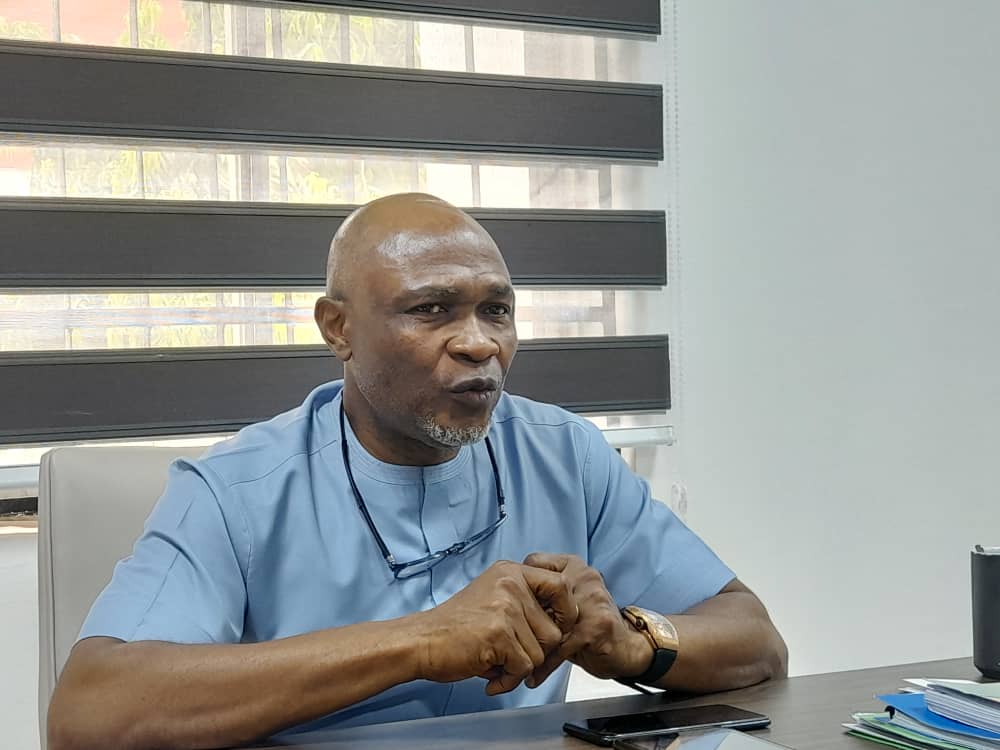
The month of March was a busy one at the Obio/Akpor Federal Constituency with numerous Programmes and Trainings approved and sponsored by Rep. O. K. Chinda.
The month of April is already showing signs of being busier as we have commenced a Free 3-day Medical Outreach.
Today, which is day 1, featured Health Talks and Sensitization, with some participants going home with 10kg of rice after being attended to.
The programme continues tomorrow and will include the following: –
• Vital signs checking.
• Seeing of Doctor/optometrist.
• Laboratory/ diagnosis
• Pharmacy.
The medical outreach is anchored by Dailystar Pharmacy Nigeria Limited
“I WIN, U WIN”
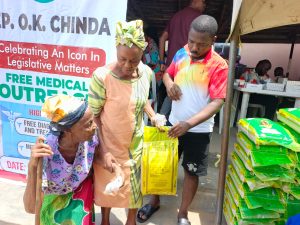
From
The Media Team
Obio/Akpor Federal Constituency Office
News
Security Personnel Shoots Himself Trying To Nab Suspect In Abuja
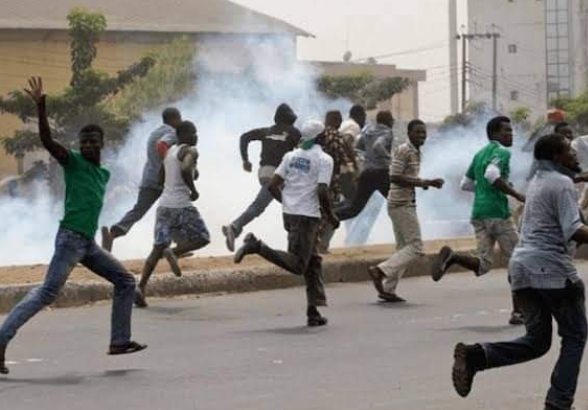
By Kayode Sanni-Arewa
There was tension on Wednesday As vigilante operating at Dei-Dei community in Bwari Area Council of the Federal Capital Territory (FCT), Mujahid Ibrahim (32), has reportedly shot himself while trailing a suspect in the area. Abuja Metro learnt that the bullets from his rifle injured him around his feet, with at least seven cartridges extracted from his body
He was said to be awaiting x-ray results for the possibility of more cartridges in his body.
The incident took place around 12 am in the early hours of Wednesday when the victim and his colleague intercepted a resident in the neighbourhood, they were guarding for working at late hours.
Speaking yesterday at the Kubwa General Hospital, where he was rushed to, Ibrahim said the suspect came around 12 am against the 11 pm, which was agreed upon by the members of the community.
“My colleague, who attended to him, tried in vain to make him understand the rule, but instead for him to cooperate, he resorted to violence and in an effort to scare him, I cooked my rifle pointing toward the sky. I later withdrew the rifle back to my shoulder, but forgot to pull it back and in the process of running toward him as the man was having a scuffle with my colleague, the gun fired out some bullets that hit me around my feet,’’ he said
Also speaking, his colleague, who accompanied him to the hospital, Ben Isaac, said following the incident, the resident in question disappeared but his elder brother has taken all the responsibilities including the treatment charges.
He added that a 24- hour warning was issued to him to appear or get arrested.
News
Just in: INEC dumps recall petition against Sen Natasha
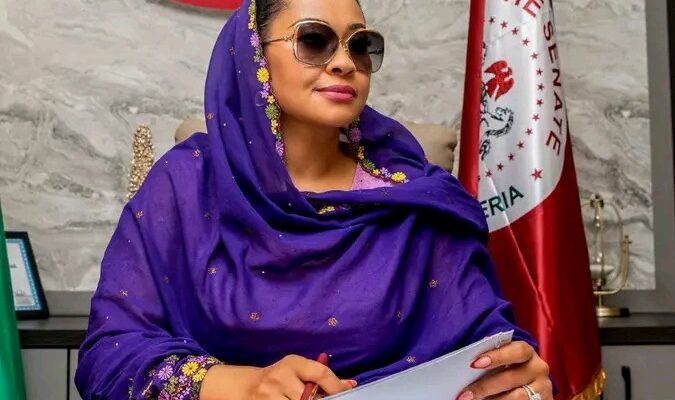
The Independent National Electoral Commission,( INEC) has rejected the petition to recall the Senator representing Kogi Central, Natasha Akpoti-Uduaghan, inadequate.
The electoral umpire via its 𝕏 handle on Thursday, April 3, 2025, made this known in a terse statement where it disclosed that the group, who initiated the process did not meet the requirements of the constitution.
INEC in a tweet on its ‘X’ handle said; “The petition for the recall of the Senator representing the Kogi Central Senatorial District has not met the requirement of Section 69(a) of the Constitution of the Federal Republic of Nigeria 1999 (as amended)”.
-

 News11 hours ago
News11 hours agoRivers APC demands Fubara’s probe over ex-HoS allegations
-

 Economy4 hours ago
Economy4 hours agoSEE Black Market Dollar To Naira Exchange Rate Today 3rd April 2025
-

 News4 hours ago
News4 hours agoNatasha: Kogi PDP hammers Ododo, reiterates unfeigned support for her
-

 Economy12 hours ago
Economy12 hours agoNaira rebounces against the dollar in parallel market
-

 News2 hours ago
News2 hours agoJust in: INEC dumps recall petition against Sen Natasha
-
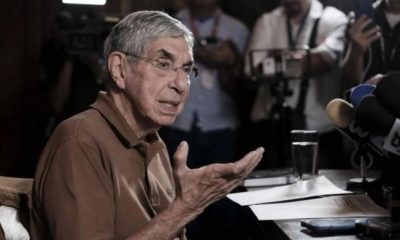
 News4 hours ago
News4 hours agoUS cancels ex- president ,Nobel Peace Prize winner Oscar Arias visa
-

 News11 hours ago
News11 hours agoAir Algerie Inaugural Flight to Abuja Will Strengthen Nigeria-Algeria Ties – FG
-

 News7 hours ago
News7 hours agoJust in: Finally, Trump imposes 14% tarriff on Nigeria oil, others


